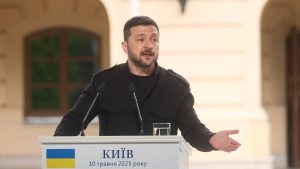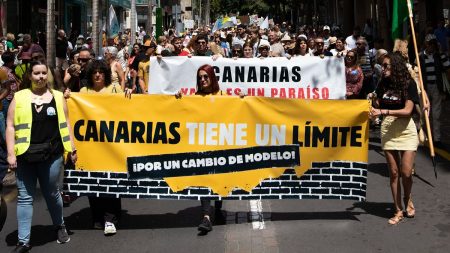The political landscape of South Korea has been thrown into disarray following the impeachment of President Yoon Suk-yeol. This marks the second impeachment attempt in a single week, highlighting the deep divisions and escalating tensions within the nation. The first attempt failed due to a boycott by the ruling People Party, preventing the motion from reaching the required two-thirds majority. However, the second attempt saw full attendance from lawmakers, resulting in a decisive vote of 204 in favor of impeachment and 85 against, effectively suspending President Yoon’s powers and duties. The Constitutional Court now holds the weighty responsibility of determining President Yoon’s fate within 180 days. Should the court uphold the impeachment, a snap presidential election will be held within 60 days, further adding to the political uncertainty. The international community, including the European Union, has expressed concern, urging a swift and constitutional resolution to the crisis, recognizing South Korea’s strategic importance on the global stage.
The impeachment follows weeks of escalating public protests against President Yoon’s conservative policies, culminating in his controversial declaration of martial law on December 3rd. This unprecedented move, the first in over four decades, triggered widespread alarm and intensified public dissent. Though short-lived, lasting only six hours, the martial law declaration sent shockwaves through the nation, rattling financial markets and sparking widespread condemnation. President Yoon’s attempt to deploy troops and police to the parliament to obstruct a vote on the decree was met with swift resistance, with lawmakers unanimously overturning the declaration. This act of defiance further fueled the growing calls for his impeachment, adding weight to the accusations of abuse of power.
The impeachment motion accuses President Yoon of “committing rebellion that hurts peace on the Republic of Korea,” citing his mobilization of military and police forces as a threat to the National Assembly and the public. The opposition parties and legal experts argue that President Yoon’s actions constitute rebellion under a law clause that defines it as staging a riot against established state authorities to undermine the constitution. The dramatic sequence of events—the martial law declaration, the attempted parliamentary blockade, and the subsequent impeachment motion—reflects the deep political fault lines and the escalating confrontation between the President and the opposition.
President Yoon vehemently denies the accusations, defending his martial law order as a necessary act of governance aimed at warning the liberal opposition Democratic Party, which he labels as “anti-state forces.” He claims that the Democratic Party has misused its legislative power to impeach top officials and obstruct the government’s budget bill. This rhetoric further exacerbates the political divide, presenting the conflict as a battle against forces seeking to undermine the state. While President Yoon portrays his actions as necessary measures to protect the nation, his critics see them as an authoritarian overreach, justifying the impeachment as a crucial step to uphold democratic principles and the rule of law.
The legal ramifications for President Yoon are significant. He is currently barred from leaving the country as authorities investigate his involvement in the martial law declaration, exploring charges of rebellion, abuse of power, and other potential crimes. If convicted, he could face severe penalties, including life imprisonment or even the death penalty. The investigation extends beyond the president, encompassing several high-ranking officials within his administration. South Korea’s defense minister, police chief, and the head of Seoul’s metropolitan police agency have already been arrested for their alleged roles in the martial law incident, while other senior military and government officials face ongoing investigations. These arrests underscore the seriousness of the allegations and the potential for widespread repercussions within the government.
The ongoing political crisis in South Korea presents a significant challenge to the nation’s stability and democratic institutions. The impeachment of President Yoon has further deepened the political chasm, creating a climate of uncertainty and heightened tensions. The Constitutional Court’s decision on the impeachment will be a pivotal moment, determining not only President Yoon’s future but also the trajectory of South Korean politics. The international community will be watching closely, hoping for a swift and peaceful resolution to the crisis that upholds democratic principles and safeguards the stability of this key player in the East Asian region. The outcome of the impeachment process and the subsequent investigations will undoubtedly shape the future political landscape of South Korea and have far-reaching consequences for the country’s domestic and international standing.














